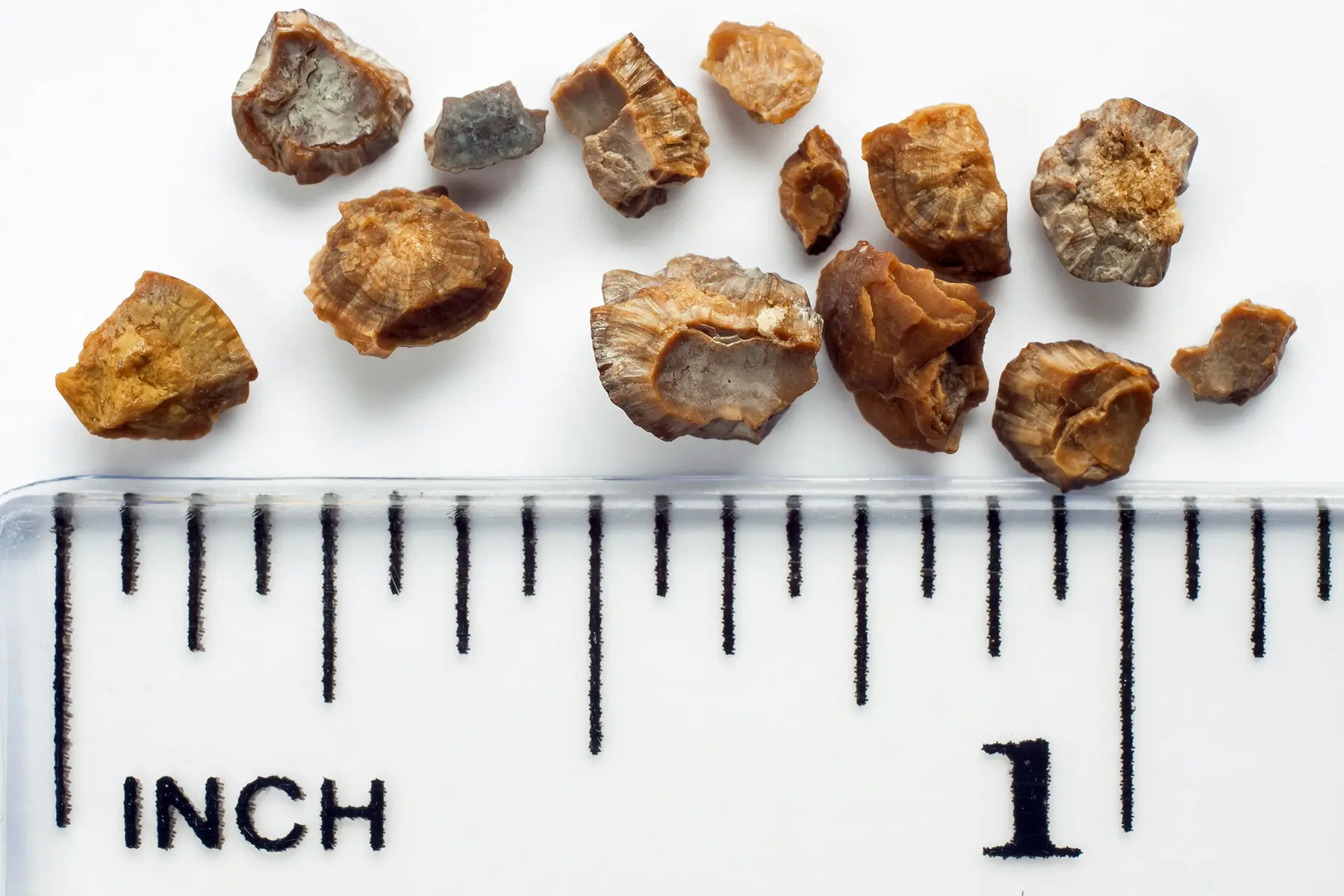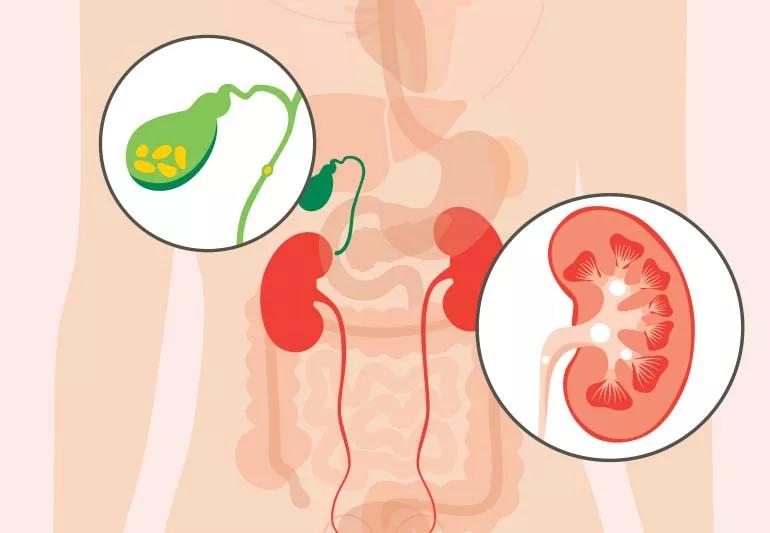Discovering the Symptoms and Causes of Kidney Stones in Comparison to Urinary System Tract Infections: A Detailed Guide
The exploration of kidney stones and urinary system infections (UTIs) discloses a complex interplay of symptoms and underlying causes that necessitate careful assessment. While both problems can cause hematuria, they provide distinctive clinical features and develop from various etiological factors. Understanding the nuances of each problem is crucial for effective medical diagnosis and monitoring. What are the essential differences in their signs, and exactly how might these notify treatment strategies? The solution to these concerns might offer crucial understandings right into the avoidance and care of these typical urological issues.
Review of Kidney Stones
Kidney rocks, likewise referred to as renal calculi, kind when specific compounds in the urine crystallize and aggregate, leading to the development of tough down payments within the kidneys. These rocks can vary in size, varying from a grain of sand to a golf ball, and can be composed of numerous products, the most common being calcium oxalate, uric acid, struvite, and cystine. The formation of kidney stones is influenced by several factors, consisting of nutritional behaviors, liquid intake, and genetic proneness.
Signs and symptoms of kidney stones may consist of serious pain in the back or side, blood in the pee, queasiness, and constant urination, particularly as the rock moves through the urinary system tract. Medical diagnosis commonly entails imaging research studies such as ultrasound or CT scans, along with urinalysis to identify the rock's structure.
Therapy alternatives differ based upon the size and sort of stone, along with the seriousness of signs (Kidney Stones vs UTI). Small rocks may pass normally with increased liquid intake, while bigger stones might require medical interventions such as lithotripsy or medical removal. Recognizing the pathophysiology and danger factors connected with kidney stones is necessary for effective avoidance and management
Introduction of Urinary Tract Infections
Urinary system infections (UTIs) prevail microbial infections that affect any type of component of the urinary system, including the kidneys, ureters, bladder, and urethra. They mainly occur when germs, usually from the stomach tract, go into the urinary system, leading to inflammation and infection. UTIs are classified right into two primary kinds: challenging and uncomplicated. Straightforward UTIs typically happen in healthy and balanced individuals with typical urinary system tracts, while complex UTIs may emerge in individuals with hidden conditions, such as structural irregularities or endangered immune systems.
The occurrence of UTIs is significantly greater in women than males, mainly because of anatomical differences, such as a shorter urethra. Threat factors include sexual activity, certain contraceptive methods, urinary retention, and dehydration. The diagnosis of UTIs is generally confirmed through pee tests, which might expose the existence of germs, white blood cells, or red blood cells.

Signs And Symptoms of Kidney Stones
The pain associated with kidney stones can materialize in numerous means, frequently leading individuals to seek clinical interest. One of the most common signs is serious pain, normally local in the lower back or side, which may radiate to the abdomen or groin. This discomfort, often called sharp or cramping, can occur all of a sudden and may fluctuate in intensity.
In addition, people may experience hematuria, or blood in the urine, which can vary from microscopic amounts weblink to noticeable staining. This sign might be come with by changes in urinary system behaviors, such as boosted frequency or necessity, along with discomfort throughout urination. Nausea and throwing up are likewise common, commonly resulting from the body's response to intense discomfort.
Sometimes, people might experience fever and chills, specifically if a secondary infection develops because of the blockage brought on by the stones. In general, the combination of serious pain, hematuria, transformed urinary system patterns, and gastrointestinal signs can supply substantial understanding right into the visibility of kidney rocks, warranting prompt medical evaluation and intervention. Understanding these symptoms is important for timely diagnosis and effective management of the problem.
Signs And Symptoms of Urinary System Tract Infections
Infections within the urinary tract often offer a series of distinct signs and symptoms that can dramatically affect every day life. The most usual signs and symptoms include a persistent impulse to urinate, frequently come with by a burning feeling during peeing, known as dysuria. People might likewise experience enhanced regularity of urination, producing tiny amounts of urine each time.
Various other noteworthy signs and symptoms include gloomy or foul-smelling urine, which might show the presence of microorganisms or pus. In many cases, urine might show up pink or red due to the existence of blood, a problem recognized as hematuria. Additionally, individuals might experience pelvic pain or stress, which can further intensify the sensation of necessity.
Systemic Resources symptoms may also materialize, such as fever, chills, and tiredness, specifically if the infection has actually risen to the kidneys. It is essential to acknowledge these signs and symptoms early, as unattended urinary system system infections can lead to more serious difficulties. Kidney Stones vs UTI. Motivate clinical attention is recommended when these signs are observed, permitting suitable diagnostic evaluation and therapy to relieve pain and stop additional health and wellness issues
Sources Of Each Problem
Often, kidney stones and urinary system system infections develop from distinct yet occasionally overlapping causes that can impact people differently. Kidney rocks typically develop as a result of metabolic factors, dietary selections, and hereditary predispositions. Boosted degrees of calcium, oxalate, or uric acid in the pee can lead to stone development. Dehydration, not enough fluid intake, and high-sodium diet plans can worsen these problems, advertising crystallization within the urinary tract.

Recognizing these distinct causes is crucial for prevention and therapy. Kidney Stones vs UTI. While way of living adjustments might reduce the threat of kidney stones, ideal hygiene and punctual treatment of urinary system infections are vital for lowering their reoccurrence and linked problems
Verdict
In summary, kidney stones and urinary system system infections present unique signs and symptoms and underlying causes. Kidney stones are identified by severe pain and metabolic aspects, while urinary system tract infections mainly entail microbial infections leading to urinary necessity and pain. Although both conditions can lead to hematuria, their development devices vary significantly. Recognizing these differences is essential for efficient medical diagnosis and therapy, inevitably boosting patient outcomes for those affected by either condition.
The exploration of kidney stones and urinary system infections (UTIs) discloses an intricate interaction of signs and underlying causes that warrant careful examination.Urinary system system infections (UTIs) are typical bacterial infections that affect any kind of component of the urinary system, including the kidneys, ureters, bladder, and urethra.Frequently, kidney stones and urinary system tract infections occur from distinct yet sometimes overlapping reasons that can impact people in different ways.In recap, kidney stones and urinary system infections present distinct signs and symptoms and underlying reasons. Kidney stones are identified by serious pain and metabolic variables, while urinary system tract infections check over here largely include bacterial infections leading to urinary system urgency and pain.